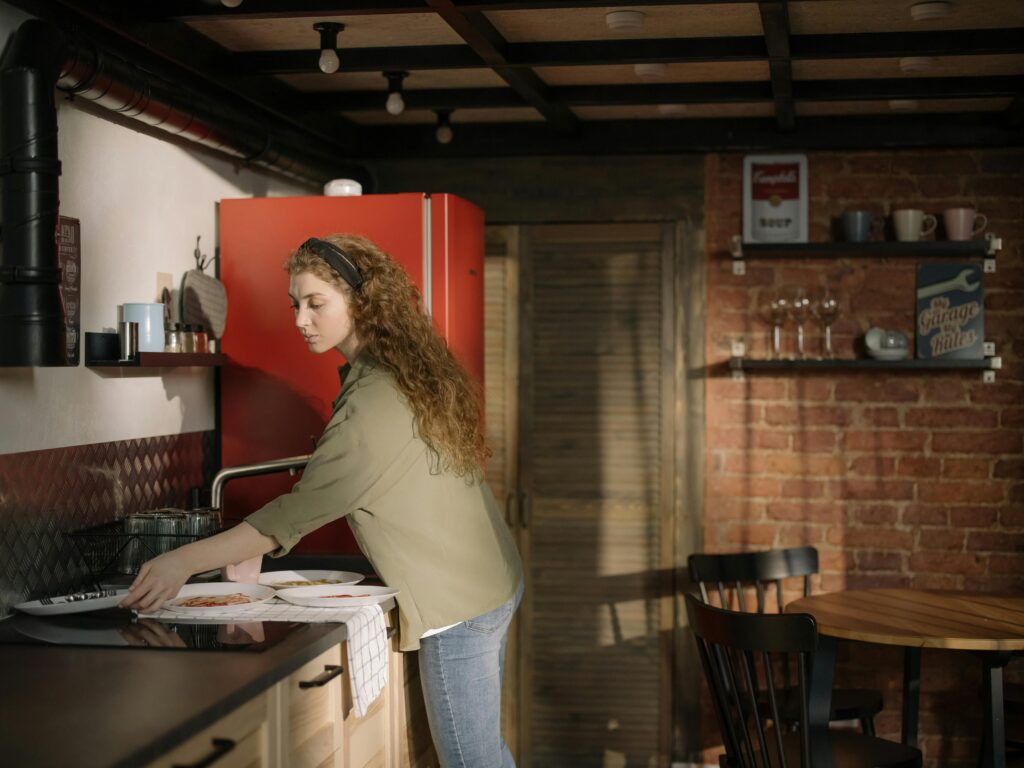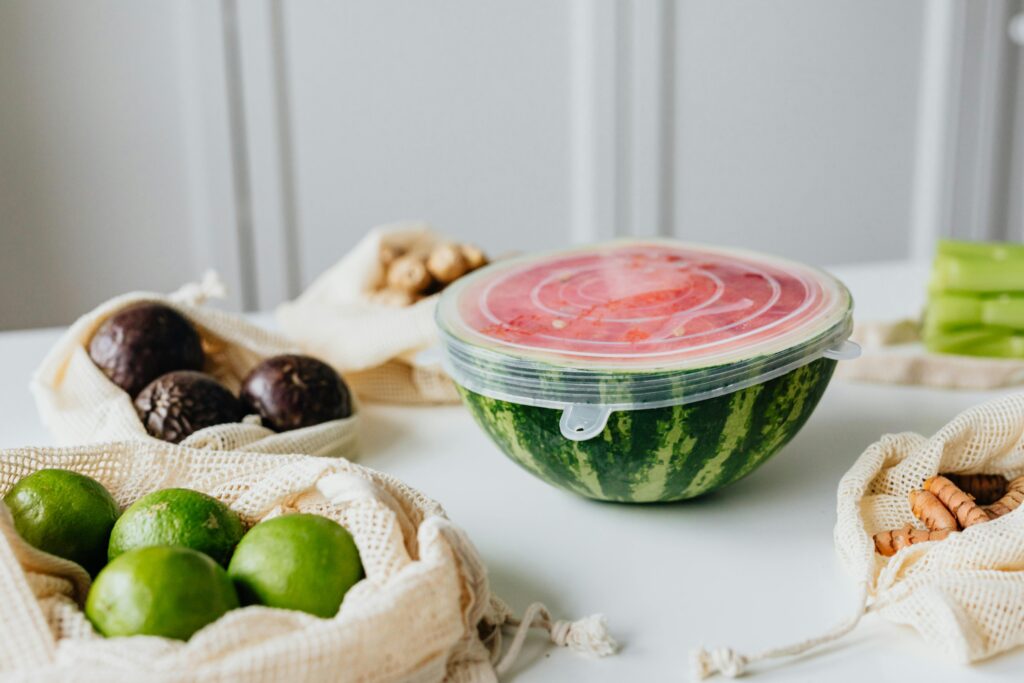Every family has to do the dishes daily, which can take a long time. Dishes get dirty fast, whether you live alone, with family, or cook a lot. You can save time, keep your kitchen clean, and enjoy the task more if you know how to wash dishes faster. This article will show tips, tools, and time saving habits to make washing dishes easy and quick. You will learn how to keep your sink clean without scrubbing for hours.

Why Washing Dishes Quickly Matters
Saves Time for Other Tasks
Everybody is busy, and spending too much time at the sink can be annoying. You can cook, relax, or spend time with your family more easily if you wash the dishes faster.
Reduces Kitchen Stress
The kitchen usually looks messy when the sink is full of dirty dishes. This can be too much and upsetting. If you wash your dishes quickly, the kitchen will be cleaner and you’ll feel better when you walk in.
Helps keep your kitchen cleaner
When you do not wash your dishes, food dries out, and germs can grow. It takes less time to keep your food safer if you wash it immediately. Washing dishes quickly doesn’t smell bad, and food does not stick to the plates.
Preparing Before You Wash
Clear the Counter and Sink
Clear the sink and counter of any extra food, empty bottles, and other things before you start. When you do not have to move things around to clean, washing the dishes is easier. This easy step makes everything go faster.
Gather All Dirty Dishes Together
Gather the dishes in one place instead of washing them individually. Please bring cups from the living room, plates from the table, and pots and pans from the stove. You can clean everything at once, which saves time.
Scrape Off Food First
Put food scraps in the garbage or compost before washing dishes. Doing this before cleaning keeps the sponge from getting too oily too quickly and keeps the drains from clogging.
The Best Way to Put Dishes Away
How to Do the Wash
Start with lighter things like cups and glasses. After that, move on to bowls and plates. Add dirty pans and tools to finish. This order keeps the water cleaner for longer and stops the spread of greasy food.
Stack things that are alike together
Putting plates, bowls, and cups on each other speeds up cleaning. Moving things around takes less time, and it’s easier to rinse dishes that are grouped by type.
Use One Side for Dirty, One for Clean
If you have two sinks, put dirty dishes in one and clean ones in the other. If you only have one sink, put a drying rack or tray close by. This keeps clean and dirty things separate so that you can move faster.
Tools That Save Time
A Good Sponge or Scrubber
You move more slowly when the sponge is worn out. Use a dish brush or a sponge with a scrub side for harder spots. Good tools make cleaning easy and cut the time to scrub in half.
Dish Soap with Fast Action
Different dish soaps break down grease at different rates. Pick a soap that foams up easily and removes oil without much work. It takes less time and water to use good soap.
Warm Water
Cold water does not loosen grease as quickly as warm water does. It makes cleaning easier and reduces the time you need to scrub. Make sure the water isn’t too hot for your hands.
Smart Dishwashing Techniques
Soak Tough Dishes First
Soak pans in warm soapy water while you wash other plates if food is stuck. It will be much easier and faster to scrub when you get back.
Use Two Hand Washing
With one hand, hold the dish and the other, the sponge. Scrub the dish quickly with one hand while turning it with the other. Scrubbing with both hands on the same thing takes longer than this method.
Rinse in Groups
Do not rinse each dish right away after washing it. Instead, wash several dishes and then rinse them all at once. This reduces the time to switch between soap and rinse and saves water.
Habits That Save Time
Clean up right after eating
It gets tougher as you wait longer. If you wash your plates immediately after eating, the food won’t dry. This saves time cleaning and keeps the sink clean all day.
Do not Overload the Sink
It takes longer to do things when too many dishes are in the sink. Wash things in small groups to save room and keep fragile things like glasses from breaking.
Turn Dishwashing into a Routine
Dishes should be something you do every day. Like, wash your hands every night after dinner. Cleaning the dishes regularly keeps the job from getting too big.
How to Use a Dishwasher Correctly
Do it right when you load dishes
Plates should go on the bottom rack, and cups and bowls should go on top. Do not stack dishes on top of each other, as water will not be able to reach them. Proper loading makes sure that results are faster and better.
Do not Pre Wash Too Much
These days, most cleaners can handle food scraps as long as you scrape the plate first. Do not waste extra time rinsing everything before packing. It saves time and water this way.
Choose the Right Cycle
A lot of dishwashers have choices for a quick wash. When the dishes are not very dirty, use these. Less time on the cycle cleans well and saves power.
Keeping the Kitchen Cleaner Every Day
Use Fewer Dishes When Possible
Do not use several plates or cups if you are having a drink or a snack. The fewer things you use, the faster it will be to clean up.
Rinse As You Cook
Rinse cutting boards, knives, and mixing bowls right after you use them while cooking. This keeps piles from building up later and makes washing up easier after a meal.
How to Properly Store Dishes After Washing
Dry dishes on a rack or in a closet so they stay in order. A clean method keeps things from getting messy and speeds up the next time you wash.
The most common mistakes that slow you down
Letting Food Sit Overnight
Cleaning up dried food is harder because it sticks to things more. It is always faster and easier to wash dishes the same day.
Putting too much soap on
When you add too much soap, extra bubbles form that must be rinsed off more often. Only use a small amount of very strong soap for the best results.
Not Getting New Sponges
Using an old sponge takes too long and does not clean well. To keep cleaning quickly and well, change the sponges often.
Eco Friendly Ways to Wash Faster
Use a Basin of Water
Fill a bowl with soapy water instead of leaving the tap running. Use the sink to wash the dishes, and then rinse them off. You can move faster and use less water this way.
Choose Reusable Dish Cloths
The clothes you use again and again soak up more than paper towels and last longer. They save time and money by making it easy to wipe down dishes.
Dry in the air instead of by hand
Do not dry your food by hand with a towel. Set them on a rack to dry naturally. This saves time and makes it less likely that germs from towels will spread.
Conclusion
It does not have to take forever to wash the dishes. You can make the process faster and easier by getting ready before you wash, using smart methods, and making good habits. Everything you do saves time, from soaking tough pans to loading your washing quickly. Being consistent is key. Ensure you wash your dishes right after meals, clean up your space, and use the right tools every time. After reading these tips, you will spend less time at the sink and more time enjoying a clean, stress free kitchen.



